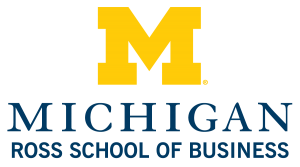In the summer of 2011, Abt Associates was awarded a contract to implement indoor residual spraying (IRS) in up to 17 countries in sub-Saharan Africa based on successes the company had with its IRS program in Uganda. Abt Associates implemented a number of changes in supply chain management after the first spray round of the Uganda project, including getting community buy-in and involvement, as well as tracking of equipment and supplies—all with excellent results. The procurement process for the new sub-Saharan project had come to a close, and Abt Associates had to present a work plan to the client in just four weeks. Abt Associates Portfolio Manager Susan Scribner decided to visit with Chief of Party of the Uganda office J. B. Rwakimari in Kampala to examine how to best apply lessons from the Uganda project on a larger scale.
ABT Associates: Scaling Indoor Residual Spraying for Malaria Prevention in Africa
by: Ravi Anupindi, Colm Fay
Publication Date: February 11, 2013
Length: 36 pages
Product ID#: 1-429-272
Core Disciplines: Base of the Pyramid, Operations Management/Supply Chain
Available Documents
Click on any button below to view the available document.
Don't see the document you need?
Don't See the Document You Need?
Make sure you are registered and/or logged in to our site to view product documents. Once registered & approved, faculty, staff, & course aggregators will have access to full inspection copies and teaching notes for any of our materials.
Make sure you are registered and/or logged in to our site to view product documents. Once registered & approved, faculty, staff, & course aggregators will have access to full inspection copies and teaching notes for any of our materials.
$3.95
Need to make copies?
If you need to make copies, you MUST purchase the corresponding number of permissions, and you must own a single copy of the product.
Electronic Downloads are available immediately after purchase. "Quantity" reflects the number of copies you intend to use. Unauthorized distribution of these files is prohibited pursuant to term of use of this website.
Teaching Note
This product does not have a teaching note.
Description
Teaching Objectives
After reading and discussing the material, students should:
- Examine how Abt Associates improved its Indoor Residual Spraying (IRS) program by obtaining community buy-in and involvement, as well as, keeping better track of its equipment and supplies.
- Analyze how the IRS program can be replicated, and if lessons learned in supply chain management would prove equally effective in countries with different cultures andhealth care infrastructures.
- Examine how to best apply lessons from the Uganda project on a larger scale.

